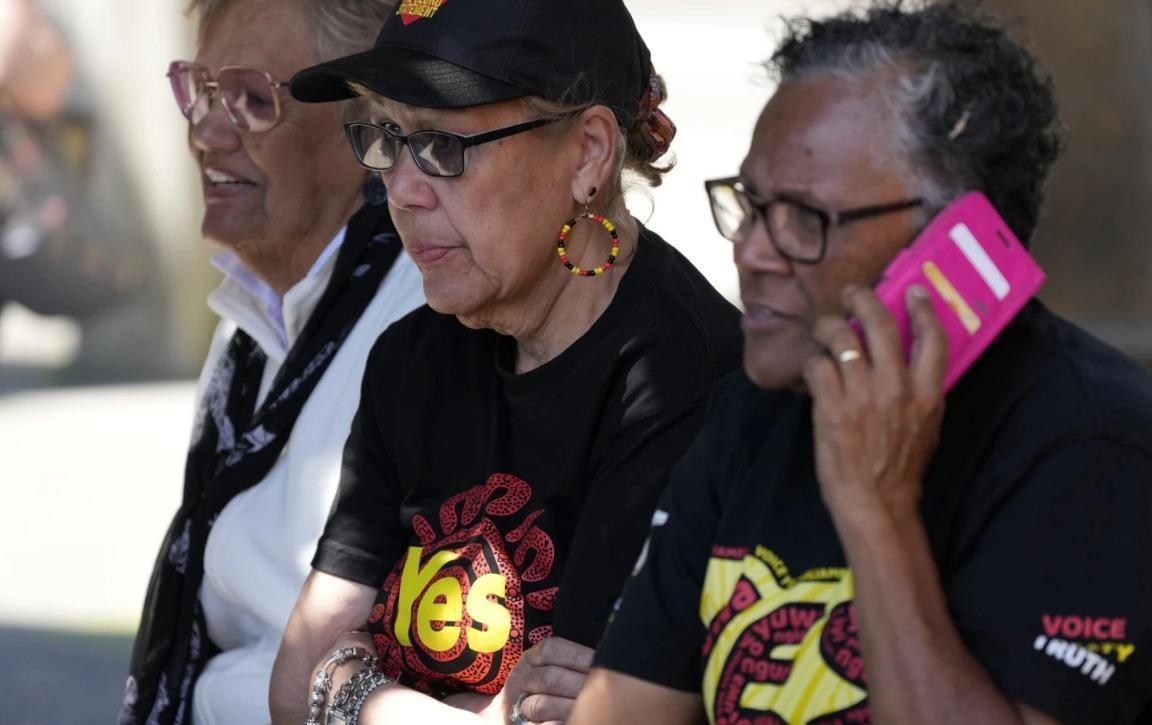
Aboriginal Australians on Sunday grieved the collapse of a landmark push for Indigenous rights and recognition that was spurned by the country's white majority in a binding constitutional referendum.
Indigenous leaders called for a "week of silence" to mourn the "bitter" outcome of Saturday's landside vote, which has called into question decades-long reconciliation efforts.
With more than 70 percent of ballots counted Sunday, around 61 percent of Australians said "no" when asked if the 1901 constitution should be changed to recognise the country's first inhabitants.
In doing so, Australians also voted against creating a new consultative body -- a "Voice" to Parliament -- that could have a say on issues related to Indigenous communities.
The proposal was defeated in every state of the country, despite being backed by Australia's centre-left government, leading sports stars, celebrities and corporations.
Aboriginal advocacy groups said Sunday that millions of Australians had ignored the chance to atone for the country's colonial past and the "brutal dispossession of our people".
"Now is the time for silence, to mourn and deeply consider the consequence of this outcome," a joint statement read.
"The truth is that we offered this recognition and it has been refused. We know now where we stand in our own country," it added, before calling for a "week of silence" to grieve and reflect.
Indigenous voter Shirley Lomas was defiant, saying the defeat had done nothing to crush her resolve.
"Aboriginal people have been here for 60,000 years and we'll continue to be here," she told AFP in the wake of the result.
"Voters voted 'no' because they fear change. Most of them wouldn't even know an Aboriginal person."
Just under four percent of Australia's 26 million population are Indigenous.
Other Indigenous Australians expressed feeling pain and rejection, after a vote that will change the way some "yes" voters see their neighbours and their country.
At a community group in Sydney's historically Indigenous suburb of Redfern, people attended a small event for those struggling to come to terms with the result.
They lit eucalyptus leaves in a traditional smoking ceremony designed to bring cleansing and to bring healing. Warm spring winds carried the smoke over a dozen or more attendees.
Sitting on the steps of the building, Shane Sturgiss quietly described the vote as "disheartening", "shattering" and "heartbreaking."
The community had come together and there "was a lot of hugging, a lot of crying. I'm going to cry now," he said, his eyes welling with tears.
But he insists that "to be angry about that would be a waste of emotion."
"This is just another period of Australia's history where our First Nations community have to pick up our shattered, broken hearts and continue on."
Political gains have not come easily for Aboriginal Australians, who have fought tooth-and-nail over the years to secure basic voting rights, own traditional lands, and win election to parliament.
Supporters saw the referendum as a way to unite the country while addressing the historical injustices inflicted upon First Nations people.
Instead, it has exposed the deep racial fault lines that still run through the country more than two centuries since British colonisers dropped anchor in Sydney Harbour.
Indigenous leader Esme Bamblett said that white voters' unfamiliarity has created fertile ground for the misinformation that dominated the referendum campaign online and off.
Outlandish social media posts suggested the "Voice" would lead to land seizures, create a South African-style system of apartheid, or was part of a United Nations plot.
"A lot of people don't know about Aboriginal people. They don't live in our communities, they don't work in our communities, and they don't know what we go through. They don't know the extent of dispossession and they don't know our history," Bamblett said.
Prime Minister Anthony Albanese has urged his divided nation to heal "in the spirit of unity" and vowed his government will continue working to deliver Indigenous recognition -- although it is unclear what options remain.
Prominent Aboriginal activist and scholar Marcia Langton declared that decades of work to build trust between Australians had failed.
"Reconciliation is dead," she told an Indigenous television broadcaster.
While the vast majority of Aboriginal Australians supported the referendum, some opposed it as a token measure that would not drive meaningful change.
Indigenous "no" campaigner Warren Mundine told national broadcaster ABC on Sunday he was thankful the referendum had failed.
The opposition campaign had deftly channelled fears about the role and effectiveness of the "Voice" assembly, encouraging people to vote "no" if they were uncertain.